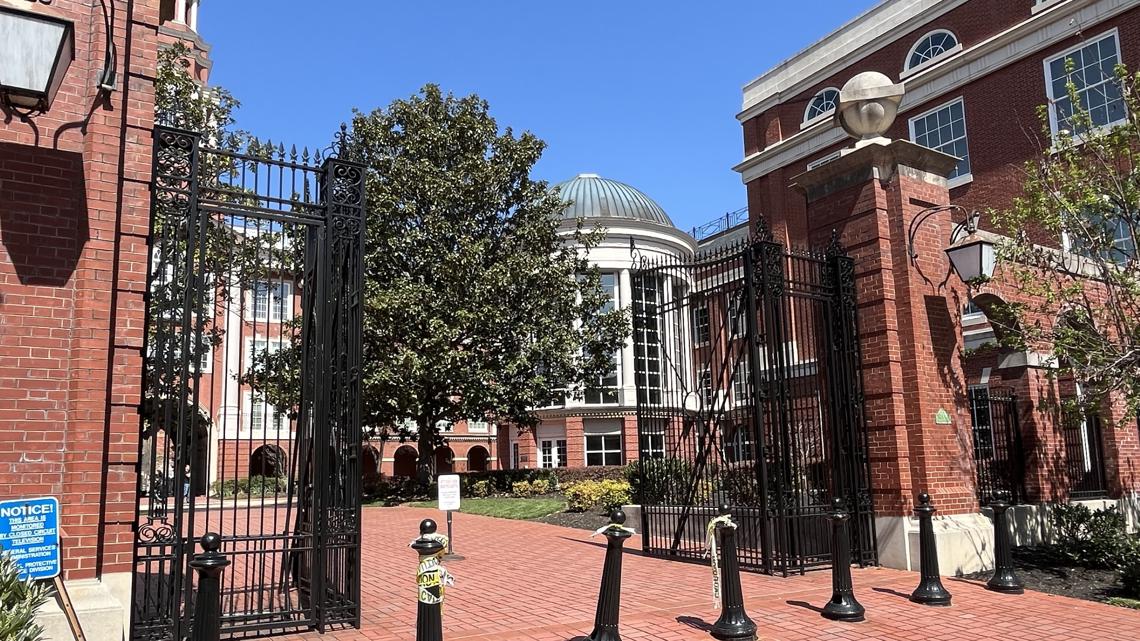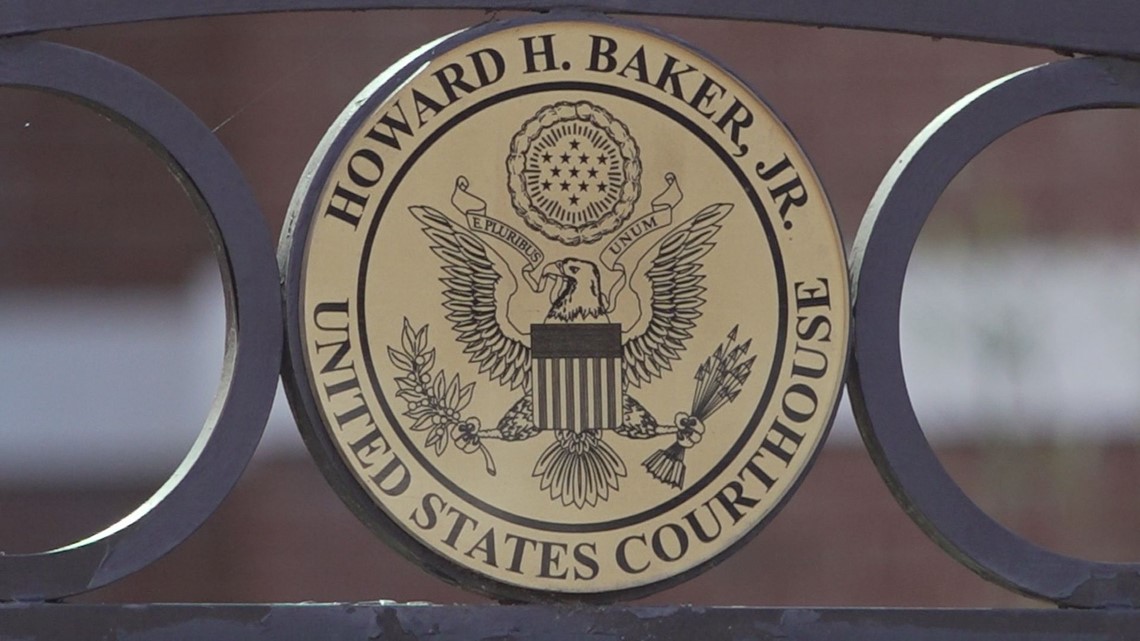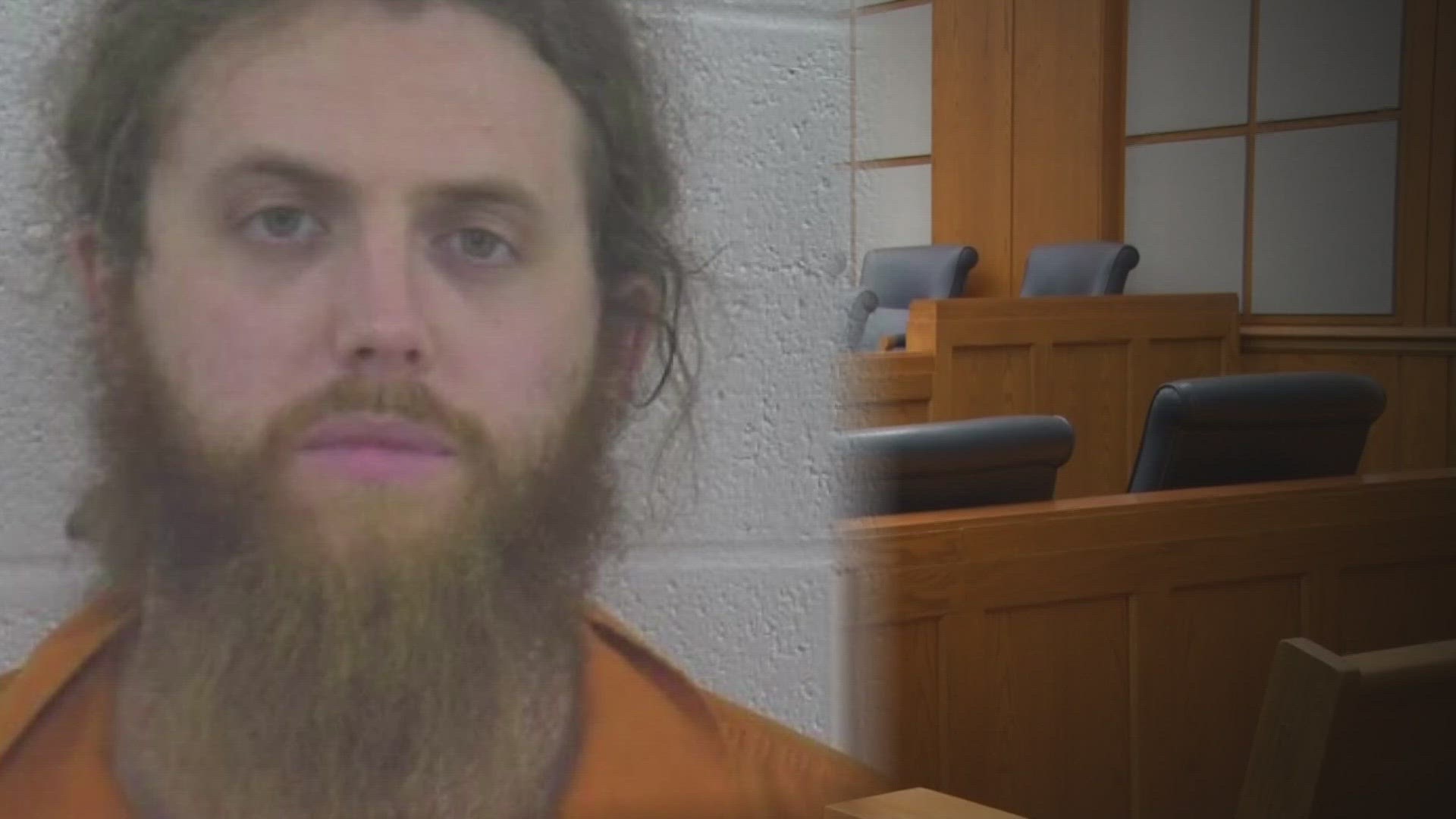KNOXVILLE, Tenn. — UPDATE WEDNESDAY: Benjamin Carpenter, the Knoxvillian found guilty of trying to help ISIS, will spend 20 years in a federal prison, a judge ordered Wednesday afternoon.
U.S. District Court Judge Katherine A. Crytzer also ordered Carpenter to serve 20 years on supervised released once he gets out of prison.
Carpenter, aka Abu Hamza, is 34 years old. He'll be 54 when he gets out.
Crytzer declined to tweak sentencing matrices, as sought by Knoxville defense attorney Wade Davies, that could have given Carpenter a break. Twenty years is the most she could impose on him.
Trying to assist the Islamic State's propaganda campaign is one of multiple ways a person can help the terror organization further its cause, the judge noted. Carpenter hasn't shown he's sorry for what he did; nor has he accepted responsibility, she said.
A jury in Knoxville federal court convicted Carpenter in October.
Federal prosecutors Kyle Wilson and Casey Arrowood appeared Wednesday on behalf of the government.
PREVIOUS STORY: A Knoxville Islamic State sympathizer who faces up to 20 years in prison for a terror-related conviction insists he's not a violent man, just someone who believes in supporting the oppressed.
"I hope you see I'm not a menace to society; I've not harmed anybody; nor has anybody harmed another because of me," he wrote in a letter to U.S. District Judge Katherine A. Crytzer ahead of sentencing.
"I have controversial views, sure, but so did America's Founding Fathers."
Federal prosecutors, however, present a vastly different view of the 34-year-old West High School graduate, also known as Abu Hamza.
"In the words of ISIS, it is 'no exaggeration' to say that (Carpenter) is a suicide bomber without a belt," prosecuting attorneys Kyle J. Wilson, Casey Arrowood and Charles J. Kovats Jr. write.


As his trial showed, they argue in a sentencing memo to Crytzer, Carpenter was eager to help the ISIS cause, leading a group of media operatives through an organization called ATP to help spread the organization's terror-based message. He remains remorseless, they argue.
Crytzer is set to impose sentence June 20 on Carpenter in federal court in Knoxville. While he faces a maximum 20-year term, defense attorneys Wade Davies and Georgia Miller are asking Crytzer to consider something less than five years, including the more than three years he's already been held locally in jail.
A federal jury in October convicted Carpenter of attempting to provide material support to ISIS. He translated ISIS propaganda that could be distributed around the world on the Middle East-based group's behalf, the government said.
The U.S. State Department considers ISIS a foreign terrorist organization. Today, it operates mainly in parts of Syria and Northern Iraq. A U.S.-led coalition conducted thousands of airstrikes in the 2010s targeting Islamic State operations.
Carpenter's work included a weekly newsletter that touted U.S. military deaths and called for war against the U.S. and its allies, according to the government.
What the Tennessee man did amounted to "an international media war" to help ISIS and undermine America, the prosecution charges in its sentencing memo for the court.
His work and the terrorist material he "consumed, regurgitated, produced in multiple languages and distributed worldwide in the years leading to his arrest speaks plainly to the severity of his conduct, his intent and motivations, the danger he presents to the public, and the need for deterrence, among other pertinent considerations," they write.
ISIS needed his help and wanted his help to spread its propaganda, the government said. He may have appeared to be an independent contractor, the lawyers said, but he was only too happy to do their bidding.
When the FBI looked at his digital accounts and hardware, they found "hundreds of videos" that included "beheadings, immolations and other executions, combat footage, desecration of corpses, pro-ISIS rhetoric, calls to violence and terror, and the like."
He was proud of what he did, they say. Now he should be held accountable.
Carpenter spoke to WBIR in 2022 from the Knox County jail where he's being held. He said then what the government accused him of -- supporting the ISIS message -- wasn't a crime.
"The Islamic state would release something in Arabic and I would find it beneficial and I would translate it," he said then.


Defense attorneys Davies and Miller echo that argument. Their client isn't a terrorist.
He provided translation services, and in doing that he didn't create or endorse content and he didn't try "to influence or affect the conduct of a government by intimidation or coercion nor retaliate against government conduct."
Carpenter's bid for a lesser sentence includes letters of support submitted by family members.
The court will likely pay close attention to what the defendant himself has to say.
He wrote Crytzer that he recognized some view him as a terrorist. There's more to him than that below the surface, he insists. For one thing, he's a booklover.
Carpenter argues the government simply wanted to silence him for exercising his First Amendment rights to speak out on the right of Muslims to create an Islamic government based on the Quran and the teachings of the prophet Muhammad.
He said he started ATP "so the English reader can drink from the sweet waters of classical and contemporary scholarly treatises hidden in the Arabic language. I could not do that alone, therefore I solicited the help of other like-minded individuals who shared a passion for learning."
ATP didn't "call on others to support or join the Islamic State. Nor did we translate or share materials instructing others on how to make bombs or anything remotely close to that..."
He continued: "I did not agree with everything the Islamic State said or did; I was not a mouthpiece in the slightest."


